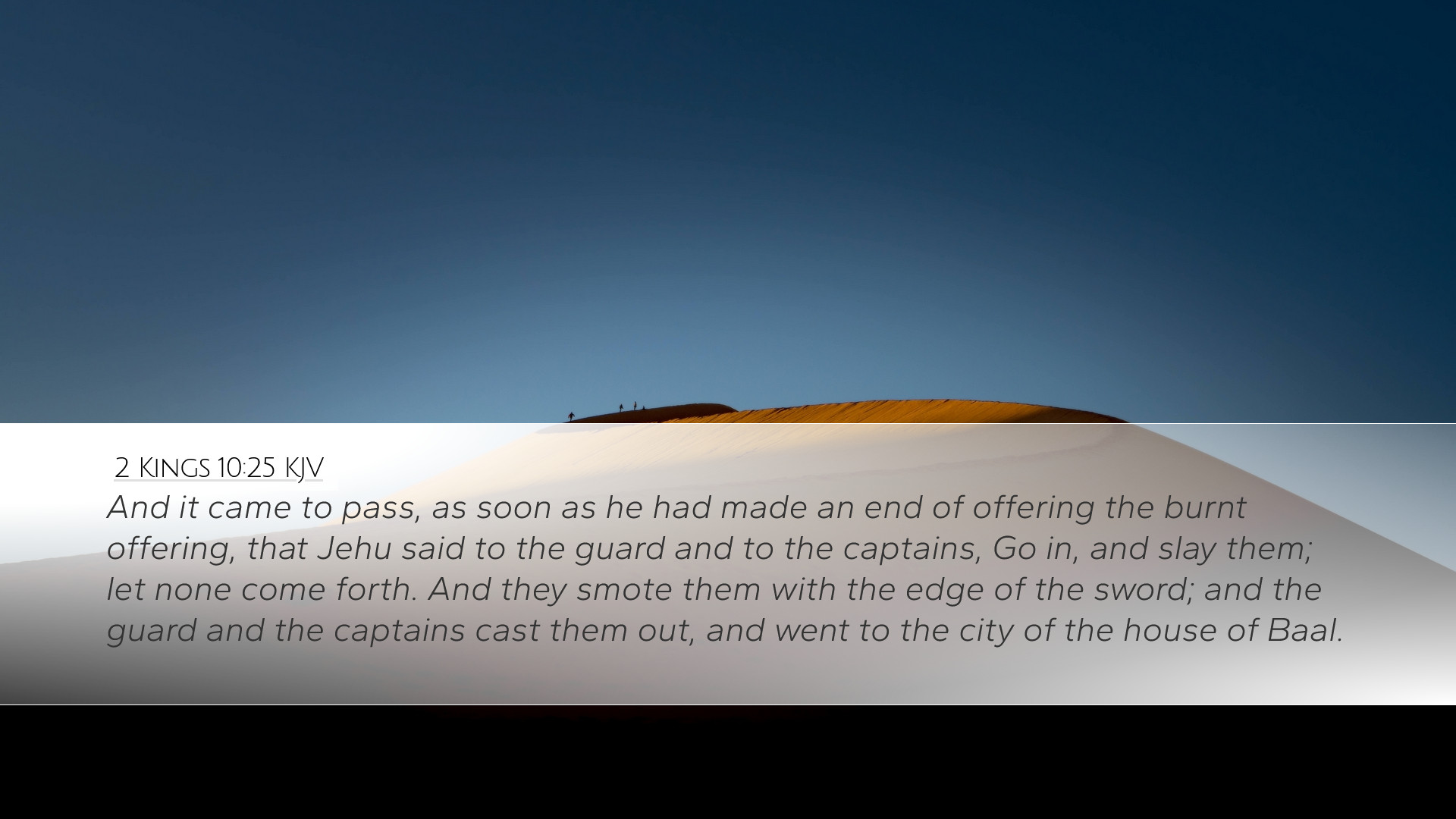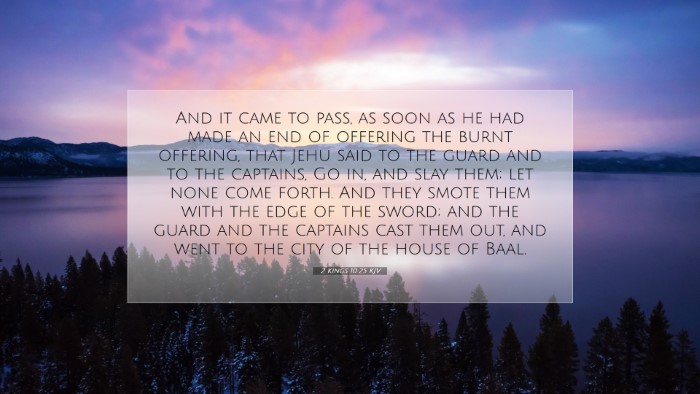Commentary on 2 Kings 10:25
Bible Verse: "And it came to pass, as soon as he had made an end of offering the burnt offering, that Jehu said to the guard and to the captains, Go in, and slay the priests of Baal; let none come forth. And they smote them with the edge of the sword; and the guard and the captains cast them out, and went to the city of the house of Baal." (2 Kings 10:25)
Contextual Background
This verse occurs during the reign of Jehu, a king of Israel who was anointed to eradicate the house of Ahab and to restore the worship of Yahweh. The passing of judgment against the priests of Baal underscores Jehu's zealous commitment to eliminating idolatry within Israel. The political and religious climate of Israel at this time was tumultuous, as the nation was rife with corruption and idol worship.
Insights from Public Domain Commentaries
Matthew Henry's Commentary
Matthew Henry emphasizes the decisive action undertaken by Jehu to root out idolatry. He notes that Jehu, after performing the burnt offering, subtly leads the priests of Baal into a trap under the pretense of worship. Henry remarks that this demonstrates the irony of their situation; they believed they were participating in a legitimate worship service, only to discover it was a site of their end. Henry concludes that this act of disobedience against God’s command exhibits the severe consequences of leading a nation astray.
Albert Barnes' Notes on the Bible
Barnes provides a detailed look at the significance of the burnt offering within the context of Old Testament worship. He notes that the offering was not merely a formality but a declaration of allegiance to Yahweh. The transition from worship to execution highlights the seriousness with which Jehu approached the eradication of Baal worship within the kingdom. Barnes indicates that Jehu's actions here reflect the divine command that was given to eliminate the priests of Baal, as they were leading Israel into sin.
Adam Clarke's Commentary
Adam Clarke discusses the sociopolitical implications of Jehu's actions. He points out that by eliminating the priests of Baal, Jehu was not only fulfilling a prophetic mandate but also consolidating his own power. Clarke notes that this was an opportunistic moment, as removing the Baal priests weakened the influence of pagan worship and solidified a new era for Israel under Jehu's rule. Besides, he emphasizes that Jehu's actions highlight the necessity for leaders to confront the blatant disobedience and idolatry that could lead the people astray.
Theological Implications
The events of 2 Kings 10:25 serve as a sobering reminder of the consequences of idolatry and the importance of remaining faithful to God. The verse illustrates the tension between true worship and apostasy, revealing how quickly a nation can shift from following God to embracing false gods. This serves as a warning for contemporary believers regarding the influences that can infiltrate worship practices and the community of faith.
Practical Applications
- Leadership and Responsibility: Leaders are accountable for the spiritual direction of their communities and must be vigilant against influences that lead to spiritual compromise.
- Vigilance against Idolatry: Believers today must remain aware of modern forms of idolatry that take precedence over God in their lives.
- Pure Worship: The act of offering burnt offerings served as a reminder of the need for sincere devotion, highlighting the importance of purity in worship.
Conclusion
In conclusion, 2 Kings 10:25 encapsulates a pivotal moment in the history of Israel, where the fervor for divine worship clashed violently with idolatrous practices. Jehu's actions provide insights not only into the historical aspects of Israel's monarchy but also into the spiritual disciplines necessary for maintaining fidelity to God. As pastors, scholars, and students engage with this text, they are challenged to examine two primary themes: the cost of idolatry and the need for true devotion to Yahweh.


